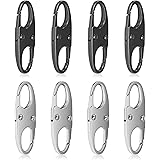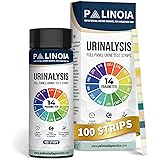As an Amazon Associate. We get small commissions for purchases made through affiliate links in this post at no extra cost to you. More info. Amazon Affiliate Disclaimer

5 Myths and Facts About Weight Loss You Have to Know
In a world obsessed with quick fixes and instant results, the topic of weight loss is a constant buzz. Everyone seems to have an opinion on the best way to shed those extra pounds. Unfortunately, not all of this advice is based on facts. In this article, we’ll explore some common myths and separate them from the tried-and-true facts about weight loss. Buckle up, because it’s time to get the real scoop on achieving a healthier you.
Myth #1:
Skipping Meals Helps You Lose Weight
Fact:
Skipping Meals Can Sabotage Your Weight Loss Goals
One of the most persistent myths in the world of weight loss is that skipping meals will lead to a slimmer waistline. However, the truth is quite the opposite. When you skip meals, your body goes into “starvation mode,” slowing down your metabolism and making it harder to burn calories efficiently. It can also lead to overeating later in the day, as your body craves more food to make up for the missed meal. Instead, focus on eating smaller, balanced meals throughout the day to keep your metabolism revved up.
Myth #2:
All Calories Are Created Equal
Fact:
Not All Calories Are the Same
While calorie counting is a useful tool for weight management, not all calories are created equal. The source of your calories matters. For example, 100 calories from vegetables will have a different impact on your body than 100 calories from sugary snacks. Nutrient-dense foods like fruits, vegetables, lean proteins, and whole grains provide essential vitamins and minerals that support overall health while helping you feel full longer.
Myth #3:
Cardio Is the Only Way to Lose Weight
Fact:
Cardio Is Effective, But Not the Only Option
Yes, cardio exercises like running, cycling, and swimming can help you burn calories and shed pounds, but they’re not the only path to weight loss. Strength training, resistance exercises, and even yoga can play crucial roles in your weight loss journey. Muscle burns more calories at rest than fat, so building lean muscle mass through resistance training can boost your metabolism and contribute to weight loss. A well-rounded fitness routine that includes both cardio and strength training is your best bet.
Myth #4:
Eating After 6 PM Leads to Weight Gain
Fact:
It’s About What and How Much You Eat, Not When
The notion that eating after a certain hour automatically leads to weight gain is a common misconception. What truly matters is the total number of calories you consume throughout the day and the quality of the food you eat. Late-night snacking on high-calorie, sugary, or processed foods can contribute to weight gain, but the same goes for eating poorly at any time of the day. Focus on portion control and choosing healthy snacks if you’re hungry late at night.
Myth #5:
Supplements Are the Magic Solution
Fact:
Supplements Are No Replacement for a Balanced Diet
Weight loss supplements may promise quick results, but they are not a substitute for a balanced diet and regular physical activity. While some supplements may provide support, they are most effective when used in conjunction with a healthy lifestyle. Always consult with a healthcare professional before adding any supplements to your routine, as some can have side effects or interact with medications.
In the realm of weight loss, misinformation runs rampant. It’s crucial to separate myths from facts to make informed decisions about your health. Remember that sustainable weight loss is a gradual process that involves a combination of healthy eating, regular physical activity, and making smart choices. Don’t fall for quick fixes or fad diets; focus on the facts, and you’ll be on your way to achieving your weight loss goals in a healthy and sustainable way.
References:
- Myths, presumptions, and facts about obesity. (n.d.). The Lens – Free & Open Patent and Scholarly Search. https://www.lens.org/lens/scholar/article/040-816-164-030-795/main
- Intermittent fasting for obesity and related disorders: unveiling myths, facts, and presumptions. (n.d.). The Lens – Free & Open Patent and Scholarly Search. https://www.lens.org/lens/scholar/article/027-086-494-233-429/main
- Myths, Presumptions, and Facts about Obesity. (n.d.). The Lens – Free & Open Patent and Scholarly Search. https://www.lens.org/lens/scholar/article/051-609-554-616-975/main
- The Truth About Obesity, Exercise, and Nutrition. (n.d.). The Lens – Free & Open Patent and Scholarly Search. https://www.lens.org/lens/scholar/article/011-664-326-760-802/main
- Myths and facts. . .about ephedrine use. (n.d.). The Lens – Free & Open Patent and Scholarly Search. https://www.lens.org/lens/scholar/article/034-850-322-311-560/main
- The Obese Client: Myths, Facts, Assessment, and Intervention. (n.d.). The Lens – Free & Open Patent and Scholarly Search. https://www.lens.org/lens/scholar/article/042-127-546-726-404/main









